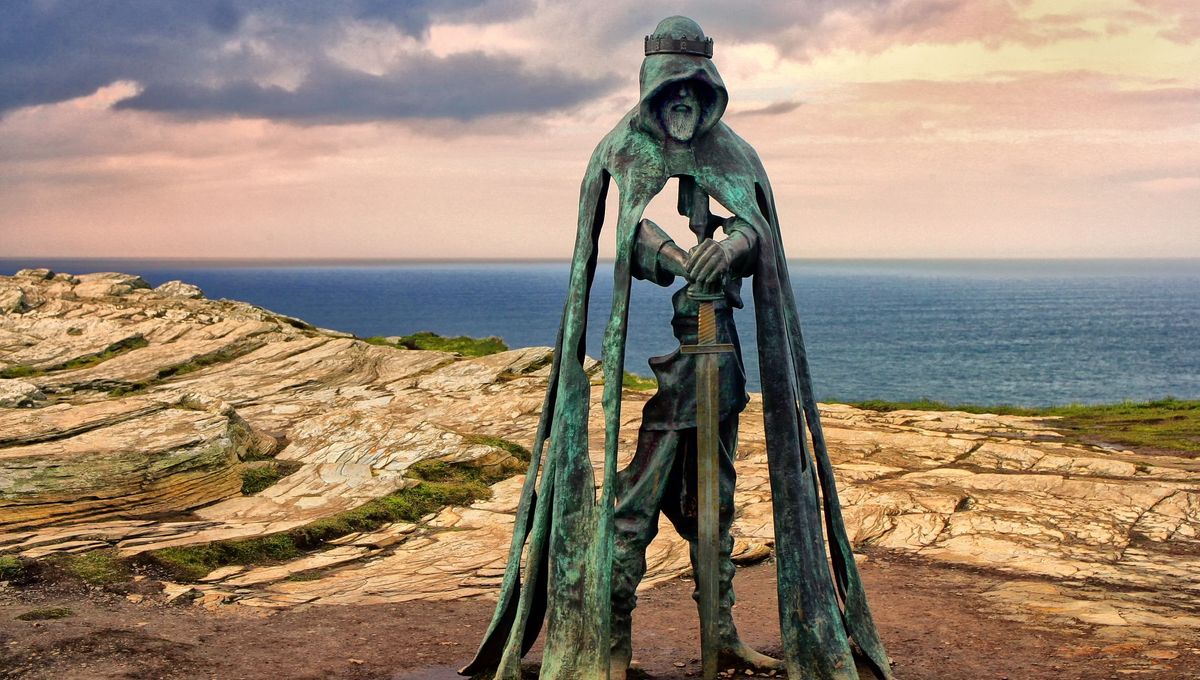
King Arthur, the ruler of Camelot, champion of Britain, wielder of Excalibur, and seeker of the Holy Grail, is surely the stuff of legend. There are probably few in Western societies who have not encountered some aspect of his story through various media, from books to television shows, to video games and so on. But despite the power of this apparently timeless mythological figure, there is one question that has caused consternation for scholars and the public alike – was the legend of Author based on a real person?
Unfortunately, despite there being many who believe there was a living, breathing king called Arthur, there is no historical evidence to support it.
The legend of a story
To be sure, the story of Arthur has not been static. It has gone through various transformations and revisions over the centuries, whereby more of the mythical features we recognize today were added. So to understand the individual from an historical perspective, we have to go right back in time.
Save for a few scattered references, we do not really hear any mention of Arthur until the 12th century CE. In his The History of the Kings of Britain, the Welsh monk Geoffrey of Monmouth provides the first extensive account of this character’s life.
According to Monmouth, Arthur’s story starts with a rather dark event when Merlin (another complex character with his own twisting legend) transformed King Uther Pendragon (certainly not a real person) into the likeness of the Duke of Cornwall. This was so Uther could spend the night with the Duke’s wife, Ygerna. During this night, Arthur was conceived in the stronghold of Tintagel.
From here, Arthur grows into a powerful leader who inherits the British throne and leads his people in various epic and bloody battles against Saxon invaders. He later spreads his kingdom to encompass Ireland, Iceland, Norway, and Gaul, but is eventually murdered by his nephew, Mordred.
There is nothing in this account about Camelot, Lancelot, the Holy Grail, his sword, or the heroic and chivalric knights who attended the Round Table. These features were all added later by authors looking to make Arthur fit with romantic ideas of their time. This was probably a good move too, as a sixth century leader would have likely been less “knightly” and far more brutal.
Monmouth’s story cannot be construed as historical fact in any way. Even in his day he was criticized for fabricating elements while mixing together pieces from various Welsh poems and sources. As such, the Arthur we get is less a coherent individual and more like a soup of stories blended together.
But what about the poems that inspired Monmouth; could they hint at a real person?
Despite the dodgy grounds for the story of Arthur, there are some who argue that his narrative was inspired, to a lesser or greater extent, by some sort of fifth or sixth century leader who was captured in Welsh poetry.
According to these claims, at the end of the Roman occupation, a leader emerged who led the Britons – who had mostly become Christian by this point – against pagan Saxon invaders, and this hero’s name was Arthur…maybe. For instance, in a poem called Y Gododdin, written sometime between 540 and 640 CE, a fallen soldier is likened to another heroic figure called Arthur. Presumably then, there was some contemporary figure who would have been sufficiently recognizable as to make this likening significant.
In another poem from the same period, the monk Gildas recalled how a hero called Ambrosius Aurelianus had led the Britons to victory at a sixth century battle known as the Battle of Badon Hill. However, a few centuries later, another monk called Nennius described a different warrior, called Arthur, as having led the Britons in this battle (and 11 others too). It is possible that Nennius’s account was one that inspired Monmouth’s later histories, though we cannot be sure.
Does this mean there really was an historical character called Arthur? Well, some like to think so, but it honestly does not look like it. As mentioned above, medieval chroniclers loved to blend fact with fiction, and many of these accounts were created hundreds of years after the events they claim to describe.
Still, there are many out there who hold a candle for the reality behind the Once and Future King. Unfortunately, history is yet to provide us with anything solid to base that hope on.
Source Link: Was King Arthur A Real Historical Person?